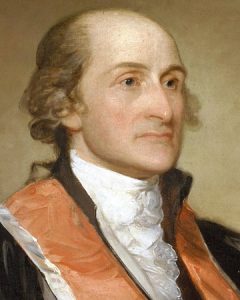LnRiLWltYWdlLnRiLWltYWdlLWZyYW1lLXNoYWRvdzEgZmlnY2FwdGlvbnttYXJnaW4tdG9wOjB9LnRiLWltYWdlIC50Yi1pbWFnZS1zaGFkb3ctMXtkaXNwbGF5OmlubGluZS1ibG9jaztwb3NpdGlvbjpyZWxhdGl2ZTt0cmFuc2l0aW9uOnRyYW5zZm9ybSAwLjI1cyBlYXNlfS50Yi1pbWFnZSAudGItaW1hZ2Utc2hhZG93LTEtc2hhZG93cy1jb250YWluZXJ7cG9zaXRpb246cmVsYXRpdmV9LnRiLWltYWdlIC50Yi1pbWFnZS1zaGFkb3ctMS1pbm5lcntvdmVyZmxvdzpoaWRkZW47cG9zaXRpb246cmVsYXRpdmU7ei1pbmRleDoyO2JhY2tncm91bmQtY29sb3I6I2ZmZn0udGItaW1hZ2UgLnRiLWltYWdlLXNoYWRvdy0xLWlubmVyIGltZ3tkaXNwbGF5OmJsb2NrO3dpZHRoOjEwMCV9LnRiLWltYWdlIC50Yi1pbWFnZS1zaGFkb3ctMS1zaGFkb3ctMSwudGItaW1hZ2UgLnRiLWltYWdlLXNoYWRvdy0xLXNoYWRvdy0ye3Bvc2l0aW9uOmFic29sdXRlO3otaW5kZXg6MTtib3R0b206MTVweDtsZWZ0OjEwcHg7d2lkdGg6NTAlO3RvcDo4MCU7bWF4LXdpZHRoOjMwMHB4O2JhY2tncm91bmQ6Izc3Nztib3gtc2hhZG93OjAgMTVweCAxMHB4ICM3Nzc7dHJhbnNmb3JtOnJvdGF0ZSgtM2RlZyl9LnRiLWltYWdlIC50Yi1pbWFnZS1zaGFkb3ctMS1zaGFkb3ctMnt0cmFuc2Zvcm06cm90YXRlKDNkZWcpO3JpZ2h0OjEwcHg7bGVmdDphdXRvfQ==
LnRiLWltYWdle3Bvc2l0aW9uOnJlbGF0aXZlO3RyYW5zaXRpb246dHJhbnNmb3JtIDAuMjVzIGVhc2V9LndwLWJsb2NrLWltYWdlIC50Yi1pbWFnZS5hbGlnbmNlbnRlcnttYXJnaW4tbGVmdDphdXRvO21hcmdpbi1yaWdodDphdXRvfS50Yi1pbWFnZSBpbWd7bWF4LXdpZHRoOjEwMCU7aGVpZ2h0OmF1dG87d2lkdGg6YXV0bzt0cmFuc2l0aW9uOnRyYW5zZm9ybSAwLjI1cyBlYXNlfS50Yi1pbWFnZSAudGItaW1hZ2UtY2FwdGlvbi1maXQtdG8taW1hZ2V7ZGlzcGxheTp0YWJsZX0udGItaW1hZ2UgLnRiLWltYWdlLWNhcHRpb24tZml0LXRvLWltYWdlIC50Yi1pbWFnZS1jYXB0aW9ue2Rpc3BsYXk6dGFibGUtY2FwdGlvbjtjYXB0aW9uLXNpZGU6Ym90dG9tfSAud3AtYmxvY2staW1hZ2UudGItaW1hZ2VbZGF0YS10b29sc2V0LWJsb2Nrcy1pbWFnZT0iNTk4YTE5MDEzNTQwMzQyMTE1ODQ4NDFhNWJjNTY4OGQiXSB7IG1heC13aWR0aDogMTAwJTsgfSAud3AtYmxvY2staW1hZ2UudGItaW1hZ2VbZGF0YS10b29sc2V0LWJsb2Nrcy1pbWFnZT0iNTk4YTE5MDEzNTQwMzQyMTE1ODQ4NDFhNWJjNTY4OGQiXSAudGItaW1hZ2Utc2hhZG93LTEtaW5uZXIgeyBib3JkZXI6IDBweCBzb2xpZCByZ2JhKCAwLCAwLCAwLCAwLjI1ICk7Ym9yZGVyLXJhZGl1czogMDsgfSBAbWVkaWEgb25seSBzY3JlZW4gYW5kIChtYXgtd2lkdGg6IDc4MXB4KSB7IC50Yi1pbWFnZXtwb3NpdGlvbjpyZWxhdGl2ZTt0cmFuc2l0aW9uOnRyYW5zZm9ybSAwLjI1cyBlYXNlfS53cC1ibG9jay1pbWFnZSAudGItaW1hZ2UuYWxpZ25jZW50ZXJ7bWFyZ2luLWxlZnQ6YXV0bzttYXJnaW4tcmlnaHQ6YXV0b30udGItaW1hZ2UgaW1ne21heC13aWR0aDoxMDAlO2hlaWdodDphdXRvO3dpZHRoOmF1dG87dHJhbnNpdGlvbjp0cmFuc2Zvcm0gMC4yNXMgZWFzZX0udGItaW1hZ2UgLnRiLWltYWdlLWNhcHRpb24tZml0LXRvLWltYWdle2Rpc3BsYXk6dGFibGV9LnRiLWltYWdlIC50Yi1pbWFnZS1jYXB0aW9uLWZpdC10by1pbWFnZSAudGItaW1hZ2UtY2FwdGlvbntkaXNwbGF5OnRhYmxlLWNhcHRpb247Y2FwdGlvbi1zaWRlOmJvdHRvbX0gfSBAbWVkaWEgb25seSBzY3JlZW4gYW5kIChtYXgtd2lkdGg6IDU5OXB4KSB7IC50Yi1pbWFnZXtwb3NpdGlvbjpyZWxhdGl2ZTt0cmFuc2l0aW9uOnRyYW5zZm9ybSAwLjI1cyBlYXNlfS53cC1ibG9jay1pbWFnZSAudGItaW1hZ2UuYWxpZ25jZW50ZXJ7bWFyZ2luLWxlZnQ6YXV0bzttYXJnaW4tcmlnaHQ6YXV0b30udGItaW1hZ2UgaW1ne21heC13aWR0aDoxMDAlO2hlaWdodDphdXRvO3dpZHRoOmF1dG87dHJhbnNpdGlvbjp0cmFuc2Zvcm0gMC4yNXMgZWFzZX0udGItaW1hZ2UgLnRiLWltYWdlLWNhcHRpb24tZml0LXRvLWltYWdle2Rpc3BsYXk6dGFibGV9LnRiLWltYWdlIC50Yi1pbWFnZS1jYXB0aW9uLWZpdC10by1pbWFnZSAudGItaW1hZ2UtY2FwdGlvbntkaXNwbGF5OnRhYmxlLWNhcHRpb247Y2FwdGlvbi1zaWRlOmJvdHRvbX0gfSA=
Literally forgotten among our founding fathers is our first Chief Justice of the Supreme Court John Jay. In selecting Mr. Jay, President Washington carefully considered men who were fully qualified both in law and the newly written Constitution, but who also were sound in the moral ground Washington saw as necessary for justice to be administered properly.
John Jay is best known outside his role of Chief Justice as the author “Publius” in The Federalist Papers, a work in which Jay, Madison, and Hamilton provided history with the inner thoughts and decisions which formed the U.S. Constitution and many of our government practices. It was through these letters, responses to questions, and essays that we find many of our “original intent” ideas.
Religiously, it was Jay who expressed the most opposition to any one particular religion being used for prayer or devotions in the Continental Congress or otherwise. It was his firm belief that freedom to worship as one chose was the foundation they sought to create and that the Congress should “make no law” or practice to take sides one way or another. Errant historians often use this part of Jay’s history to argue that he was not religious or that he was a Deist. Quite the contrary, Jay was very active in church affairs, often writing church policy and defending the practice of religious freedom for all. His son William was founder of the American Bible Society, still in existence today, and for which John Jay became one of the early Presidents.
In his early years, Jay responded to the Thomas Paine’s The Age of Reason, criticizing it for the deistic approach to the problems of the colonies and Paine specifically for his departure from the truth of the Word. Jay showed his belief in the Providence that God had provided in this newly formed nation even before it became official. In an 1811 letter to his friend John Bristed, Jay remarks on the success of the United States because of its moral compass: “If we believe there is no God there could be no moral obligations, and I do not see how society can subsist without them.”



